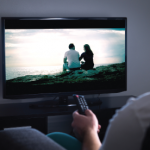Given the attention to drug safety that is the FDA’s mission, many physicians (as well as consumers) behave as if drugs are safe. Certainly, the use of pharmaceuticals is booming and it is not unusual for patients today to be on 20 or 30 different prescription drugs. Who can imagine what happens in a body bombarded simultaneously by so many different molecules?
While the belief in the safety of drugs is high, in medicine, as in everything else in life, there is no free lunch. No drug is totally safe, and safety concerns—real or theoretical—must be balanced against efficacy. The risk–benefit equation must therefore tilt solidly in the direction of benefit. As responsible providers, we have to ask whether that is always the case.
Nader on Drug Safety
By chance, I actually discussed drug safety with Ralph Nader one day while waiting in Washington Reagan Airport. In the large expanse of the terminal’s main hall, I saw Nader sitting in front of a bookshop, ready to sell autographed copies of his newest work, The Good Fight. He was by himself, looking serious and intense, and I had an hour to kill.
After some hesitation about engaging such a legendary figure, I went up to Nader and told him how much I admired his work. This being early 2008, I asked him whether he was going to run again for president. He said that he was still thinking about the future and then he asked me what I did. I told him that I was a doctor. His face immediately lit up and he expounded passionately about the necessity for healthcare reform, including the need for a single-payer system.
We then moved on to drug safety. Not surprisingly, given Nader’s history of taking on the big boys in industry, he was dismissive of the current system, including the conflicts of interest, the cozy relationships of industry with academia, and the fact that industry picks up some of the tab at the FDA via the Prescription Drug User Fee Act (PDUFA) program. In response to his critique, I told Nader about evidence-based medicine and the many efforts to prevent unsafe drugs from coming to market and to remove those that failed to live up to their promise.
If nothing else, Nader is smart and informed and—looking straight at me with fiery eyes—he quickly demolished my arguments. Because the airport was quiet and no one else came up to meet Nader, we talked for about 15 minutes. I bought a copy of the book, asking Nader to inscribe it to my wife and me, which he did, adding “For Justice.” I thanked him and then I hurried off to catch my flight.

